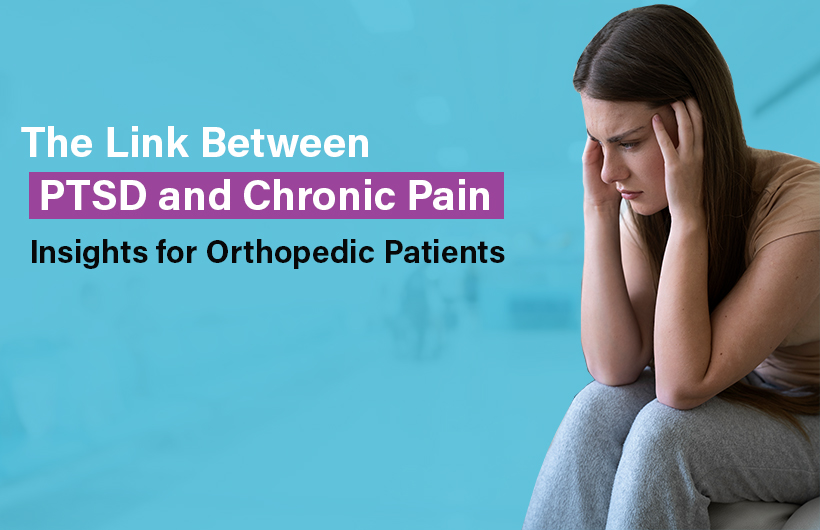Orthopedic patients frequently face not just physical trauma but also long-lasting pain that can persist long after the injury heals. As per recent research, there is a strong connection between physical injuries and psychological trauma, particularly Post-Traumatic Stress Disorder (PTSD). This connection is particularly significant for patients experiencing chronic pain following complex orthopedic injuries.
Dr. Hardik Padhiyar emphasizes that addressing trauma’s physical and emotional aspects is essential for a full recovery.
Table of Contents
ToggleUnderstanding PTSD and Its Role in Chronic Pain
PTSD is a mental health disorder that develops after experiencing or witnessing a disturbing event. Complex PTSD can also manifest in physical symptoms, including chronic pain, as it is commonly associated with emotional and mental distress. For orthopedic patients, this often means that even after the injury has healed, the pain persists due to the brain’s response to trauma.
Chronic pain can intensify PTSD symptoms, creating a cycle of discomfort and mental stress. Orthopedic treatment alone may not be enough to relieve pain unless emotional factors are also addressed alongside physical healing. A broad approach, combining both physical and emotional care, is essential for managing chronic pain effectively.
The Symptoms of PTSD
Post-Traumatic Stress Disorder (PTSD) can affect both the mind and body, especially in individuals who have experienced a traumatic event, such as a serious injury. Recognizing the symptoms of PTSD in patients is crucial for getting timely treatment, particularly for those dealing with chronic pain after orthopedic injuries.
1. Intrusive thoughts or flashbacks: Reliving the traumatic event repeatedly, which can be triggered by certain sounds, sights, or sensations.
2. Avoidance behaviors: Steering clear of places, activities, or people that serve as reminders of a traumatic event.
3. Hyperarousal: Feeling constantly on edge, which can result in trouble sleeping, increased irritability, and being easily startled.
4. Negative mood changes: Feeling disconnected from others, experiencing a sense of hopelessness, or losing interest in activities once enjoyed.
5. Physical symptoms: Many individuals with PTSD suffer from physical symptoms, such as headaches, muscle tightness, or persistent chronic pain.
Why Holistic Treatment Matters for Complex Trauma
A comprehensive approach to treating trauma is necessary for effective recovery. Treatment plans should not only focus on the physical healing of injuries but also integrate mental health support to address psychological aspects, such as PTSD. Patients are more likely to experience a more complete and long-lasting recovery.
Addressing both the physical and emotional aspects of trauma is crucial for helping patients restore their overall function and well-being. A holistic approach ensures that the body and mind are treated, leading to better outcomes and improved quality of life.
Seeking Help for PTSD and Chronic Pain
If you or a loved one is dealing with chronic pain following an injury and suspect PTSD may be a factor, don’t hesitate to seek help. This comprehensive approach integrates advanced treatments to address both the body and mind, helping patients achieve long-term recovery. A holistic approach ensures that both physical pain and emotional distress are managed, promoting a more complete and sustained recovery.
Conclusion
PTSD and chronic pain are closely linked, especially in the aftermath of orthopedic injuries. Addressing both the mind and body is critical for effective recovery. By reclaiming their well-being and quality of life, by seeking specialized care that integrates orthopedic treatment with mental health support, patients can break free from the cycle of pain and trauma. If you or a loved one is dealing with the long-term effects of an injury and suspect PTSD may be a contributing factor, it’s important to seek help. The path to full recovery is possible with the right comprehensive care.
If you’re seeking expert care, don’t hesitate to reach out. Dr. Hardik Padhiyar, recognized as the best orthopedic doctor in Ahmedabad, provides customized treatment plans that focus on both your physical and emotional well-being. Contact us today to schedule a consultation and take the first step toward a full recovery.






